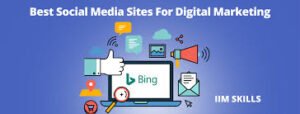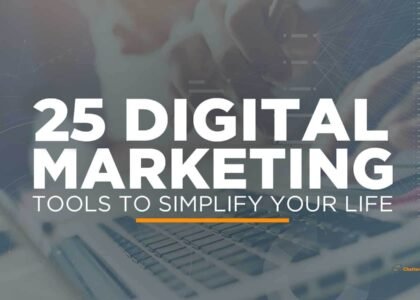Introduction:
The present day, it is the age of digitalization, and businesses of every size turn towards online marketing techniques in order to reach their target audience. Two of the most commonly encountered terms are “digital marketing” and “social media marketing.“ While they do go hand-in-hand, they also differ in characteristics and goals.
What is Digital Marketing?
Generally, the digital term encompasses any marketing efforts that use digital channels towards the consumers.
Thus, it can encompass a whole range of tactics which include:
SEO: Making your web appearance better and more vibrant in search engine results pages or SERPs in order to attract organic traffic. PPC Advertising involves running paid ads on search engines, as well as other websites, in order to generate immediate traffic.

Content Marketing: Creating valuable content (like blog posts, articles, videos) to attract and engage the target audience.
Email Marketing: Sending targeted email campaigns to nurture leads and drive conversions.
Social Media Marketing: Using social media to enhance brand awareness, engagement with customers, and drive traffic.
Advantages of Digital Marketing and Social Media Marketing:
Reach to Multiple Audience: Digital marketing and social media marketing open up options for businesses to reach a global level audience free from geographical constraints.
Cost-Efficient: Are cost-efficient compared to traditional marketing.
Measurable Result: Using analytics, businesses will be able to measure the effectiveness of their strategies.
Mass Personalization: Through, business organizations may tailor the message to specific audience groups, which helps them target the appropriate audience.
Digital Marketing Strategies:
Content Marketing: An environment filled with valuable, relevant, and consistent content attracts and retains a clearly defined audience.
Partner with Influencers Extend your brand’s reach and credibility through influencers
Optimize for Search Engine Results Pages Enhance your online website and content to rank higher
Email Marketing Build an email list and then use targeted campaign emails to nurture a lead through the entire sales funnel, which drives conversions.
What is Social Media Marketing?
The following represent some of the popular social media platforms;
Facebook.

Instagram.
Twitter.
LinkedIn.
TikTok.
YouTube.
The use of social media by marketers is as follows:
Build brand awareness: Develop engaging content to increase the visibility of the brand
Engage with customers: Comment and message responses and reviews create interpersonal relationships with the customers
Drive traffic: Sharing links to your website or landing pages will get more visitors
Generate leads: Capture leads on social media and then nurture leads through the sales funnel.
Social Media Marketing Tactics:
Pay-for-performance social media ads
Content Calendar: It will help plan and schedule content. Thus, it would be consistent and efficient.
Engagement: Respond to comments and messages to create brand loyalty
Influencer collaboration: Partner with the social media influencers to promote your brand.
Trends to Watch:
Artificial Intelligence(AI): The AI-powered chatbots along with personalized content, shall shape the digital marketing.
Video Marketing: Video contents shall rule social media.
Voice Search: Make your content voice search-friendly to stay ahead.
Social Commerce: Social media will be integral to e-commerce.
What is the Main Difference Between Digital Marketing and Social Media Marketing:
Though is an arm of , there are many areas where the two are different
Scope: The scope of is much bigger in terms of tactics, while narrows down to just targeting the networks.
Audience: The target audience for digital marketing is more general and varies highly in comparison to that of marketing, which is usually highly targeted around some sort of demographic or niche.
Metrics: Where website traffic, conversion rate, and ROI are metrics, engagement, followers, and brand mentions are the metrics.
Digital marketing and social media marketing often go hand in hand to realize overall objectives. For instance, you might employ SEO to enhance your site’s visibility in a search engine’s results, and then push your content on the social media channels to attract traffic and leads.
How to Properly Integrate Social Media into Your Digital Marketing Strategy:
Here are tips to effectively integrate social media into your digital marketing strategy:
Define Your Objectives: Determine what success on look like for you. Is it Awareness, Traffic, or Leads?
Choose Appropriate Channels: Identify which social media channels your target audience will spend the most of their time on
Content Calendar: Prepare to keep up with a flow of consistent posting.
Engage with Audience: Staying timely to responding to comments, messages, and reviews.
Use Social Media Analytics: Measure and track your performance to make improvements in your strategy.
Q: What are the four categories of Digital Marketing?
A: There are basically four major types of digital marketing:
Inbound Marketing: This is about producing content to attract and connect with customers.
Outbound Marketing: Here, a promotional message interrupts a potential customer.
Account-Based Marketing: This targets specific accounts and decision-makers.
Affiliate Marketing: It involves collaborations with affiliates who promote either a product or service.
Q: How do companies benefit from social media marketing?
A: Increases Branding Awareness, Builds Lead Generation, Drives Web Site Traffic, and Boosts Sale.
Q:What are the differences between digital marketing and social media marketing?
A:Digital marketing is an overall term, referring to all activities that apply channels. is an element of the more general class of centering on the activities of on for facilitating objectives.
Conclusion:
Digital marketing and social media marketing are two among the most crucial elements in achieving business success. Understanding the profits, strategy, and trends of both these domains will help businesses to drive successfully through the world of digital marketing.






